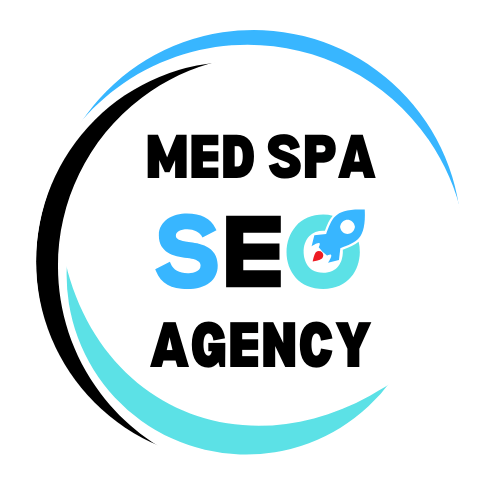Nowadays, patients increasingly turn to the Internet to find medical information and services. For that, medical practices must leverage search engine optimization (SEO) to ensure their visibility and relevance. Where the healthcare audience gets their wanted service and information.
We’ll explore here the importance of SEO for medical practices. As well as providing a comprehensive guide to healthcare SEO. Let’s get started reading.
What is Medical SEO?
Medical SEO, or search engine optimization, is the process of optimizing a medical or healthcare-related website to improve visibility and ranking on search engine results pages (SERPs). That means strategically incorporating relevant medical keywords into the content, meta tags, and headers of the website; the objective is to attract organic traffic.
Content creation is important, underscoring top-quality, informative material that tends to meet patient requirements. Local SEO targets location-specific searches, guaranteeing medical services suppliers show up in local results.
Technical perspectives, for example, versatile enhancement and site speed, are upgraded for a consistent client experience. Backlinking from legitimate sources improves the webpage’s power, while online reviews and reputation management by the executives add to its believability.
The strategy is complemented by social media integration, which increases traffic and encourages engagement. In general, medical SEO’s main target is to improve patient acquisition through search engine visibility and establish a strong online presence for healthcare providers.

Is Medical SEO Really That Important?
Medical SEO is the most important way for healthcare providers to gain ground in the digital age, combining increased visibility, targeted marketing, and patient trust for effective online patient achievement. For your better concern, below we make a table of the importance of medical SEO.
Importance of Medical SEO | Detailed Information |
1. Increased Visibility | Medical SEO is essential for healthcare providers, as it significantly increases the online visibility of their services. As well as making them more accessible to potential patients searching for relevant information. |
2. Patient Achievement | An effective medical SEO strategy directly contributes to patient achievement by attracting a targeted audience actively seeking medical information and services. |
3. Credibility and Trust | By optimizing content, local SEO efforts, and positive online reviews, medical SEO helps build credibility and trust. |
4. Competition in the Digital Space | With a rising number of individuals depending on the Web for medical service data, suppliers need to contend in this advanced space. They stand out from their rivals thanks to medical SEO. |
5. Targeted Marketing | Medical SEO allows for the vital focus of specific medical keywords and local socioeconomics, making sure that the site reaches the perfect crowd at the ideal time. |
What Makes Medical Search Marketing Special?
There are many factors, characteristics, and considerations that make medical search marketing special. Below, we gather the special factors.
Regulatory Adherence
To ensure compliance and protect patient privacy, medical search marketing begins by navigating stringent healthcare regulations like HIPAA.
Trust Building
Through authoritative content creation, positive online reviews, and the development of a solid online reputation, a particular emphasis is placed on establishing credibility and trustworthiness.
Demographics
Medical search marketing recognizes and addresses the diverse healthcare requirements of various patient groups by tailoring strategies to specific demographics.
Local SEO Optimization
Medical search marketing optimizes local SEO to increase visibility within the community because it recognizes the significance of local searches in healthcare decision-making.
Appointment Integration
Working with a consistent patient excursion by coordinating elements that improve arrangement planning empowers smooth progress from online examinations to in-person visits.
Three Important Elements of Medical SEO
Three important elements of medical SEO include on-page SEO, off-page SEO, and technical SEO. Here, we provide a short description of each element.
On-page SEO
By including relevant medical keywords, creating high-quality content, and optimizing meta tags and headers, on-page SEO focuses on optimizing individual web pages for search engines. Enhancing the user experience, ensuring readability, and providing patients with useful information are all part of it.
Off-page SEO
Off-page Search engine optimization includes building the site’s position and validity through outer factors, for example, backlink building, virtual entertainment presence, and online surveys. The medical website’s overall reputation is bolstered by reputable backlinks and favorable reviews on healthcare platforms.
Technical SEO
The backend of a website is the focus of technical SEO, which ensures mobile responsiveness, site speed, and optimal performance. Better search engine visibility is aided by structured data, well-organized site structure, and appropriate HTML markup. A comprehensive medical SEO strategy brings relevant patient traffic to a healthcare provider’s website and enhances their online presence.
How to Rank on Search Engines: Step-by-Step
Without perfect SEO, you can’t rank your website and won’t get organic traffic. For perfect SEO, you should follow some specific rules and regulations. For your easy understanding, here we have described the full guide, step-by-step to ranking your websites on search engines.
On-page SEO Guidelines
Keyword Research
Start by doing in-depth keyword research on topics related to healthcare. Find relevant keywords, get a lot of traffic, and match your content and audience. Integrate strategic keywords naturally into your content once you have a list.
Write and Publish Keyword Focused High-quality Content
Based on your keyword research, create and publish high-quality, informative content. Make certain that the content meets the requirements of your intended audience and provides useful information.
Create content that is of high quality, informative, and interesting and is centered on the identified keywords. Focus on the client experience and guarantee that your substance is significant and straightforward. Google rewards content that is well written, so putting in the time and effort to write informative blog posts or articles can significantly improve your on-page SEO.
Optimize Title Tags, H Tags, and Meta Descriptions
Optimize important on-page elements like meta descriptions, title tags, and H tags. Ensure that your titles are both convincing and incorporate essential catchphrases. To make it simpler for search engines to comprehend the structure of your content, your H tags should provide a distinct hierarchy. Create meta descriptions that are both succinct and compelling, describing the content of the page and encouraging users to click.
Add LSI Keywords to Your Page
Grow your on-page improvement by consolidating dormant semantic ordering (LSI) keywords. These are terms that are related to your targeted keywords and assist search engines in comprehending your content’s context. To improve your page’s semantic relevance, sprinkle LSI keywords all over it.
Interlink Your Web Pages
Another effective strategy for on-page SEO is interlinking. Your website’s content can be accessed by both users and search engines by creating a network of internal links between its pages. This not only makes it easier for users to navigate, but it also spreads the SEO value across your pages.
Optimize Your Google My Business Profile
Remember to improve your Google My Business (GMB) profile, particularly if your medical care business has an actual area. Guarantee exact business data, including name, address, telephone number, and business hours. To increase traffic from local searches and establish credibility, encourage positive reviews.
- Conduct keyword research on healthcare topics.
- Write and publish keyword-focused High-quality Content
- Optimize title tags, H tags, and meta descriptions.
- Add LSI keywords to your page.
- Interlink Your Web Pages
- Optimize Your Google My Business Profile
Off-page SEO Guidelines
Here are essential guidelines for effective off-page SEO:
Build Authority Links
Obtain quality backlinks from trustworthy healthcare websites and sources specific to the industry. Center around regular third-party referencing procedures, for example, visitor posting on definitive clinical sites or collaborating with medical care associations.
Build Citations
With current and accurate information (such as a name, address, and phone number), create consistent business listings across online directories. This strengthens the legitimacy of your practice and builds trust.
Share Your Content on Social Media
Engage actively on social media to boost visibility and promote healthcare content. Make use of social sharing to spread your medical content to a wider audience and encourage discussion and interaction with your intended audience.
Generate More Online Reviews for Local Search Optimization
Patients should be encouraged to write favorable reviews of healthcare-related websites like Yelp and Google My Business. Your online reputation will improve as a result of positive reviews, but they will also help with local search optimization, which will increase your visibility in local search results.
- Build authority links.
- Build Citations
- Share your content on social media.
- Generate more online reviews for local search optimization.
Technical SEO Guidelines
Here are the technical SEO guidelines to follow:.
Conduct a Thorough SEO Audit Regularly
To find and fix problems that affect the performance of your website, conduct regular and comprehensive SEO audits. This includes checking for broken joins, examining site structure, and guaranteeing legitimate ordering.
Secure Your Website
To encrypt data sent between users and your website, use HTTPS. A safe site safeguards client data as well as being preferred via web search tools, emphatically influencing your pursuit rankings.
Speed Optimization
Utilize browser caching, compress images, and eliminate unnecessary scripts to speed up the loading time of your website. The user experience is improved, and search engine rankings are improved when pages load quickly.
Make Your Website Mobile-Friendly
Make sure your website is mobile-friendly and responsive in light of the rising prevalence of mobile devices. Google gives mobile-friendly websites higher rankings, which improves your visibility in mobile search results.
You can build a strong technical foundation that improves user experience and contributes to improved search engine rankings for your medical website by regularly conducting SEO audits, securing your website, speeding up loading times, and making it mobile-friendly.
- Conduct a thorough SEO audit of your medical website regularly.
- Secure your website.
- Speed Optimization
- Make your website mobile-friendly.
Hire a Reliable Medical SEO Marketing Agency
You can find many agencies on this platform, but you should hire an expert, honest, and trustworthy SEO marketing agency for your websites. Because time and cost are too valuable. After all consideration, you can choose Med Spa SEO Agency. This is a reliable medical SEO marketing agency.
They have professional and experienced team members. You get A-Z service and support to rank and improve your websites, as well as healthcare professional service. Such as web service, search engine optimization, social media marketing, website design, content writing, video editing, and more. If you want the best service, you can hire them without any hesitation.
Final Thought
Medical professionals can not only improve their search engine rankings but also provide valuable information to patients. So, SEO for medical practices is not just a strategy; it’s very important on today’s digital platforms.
